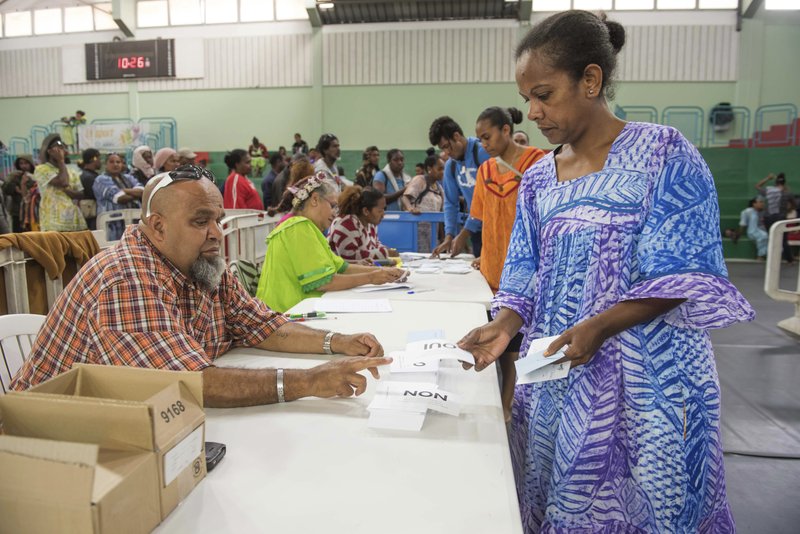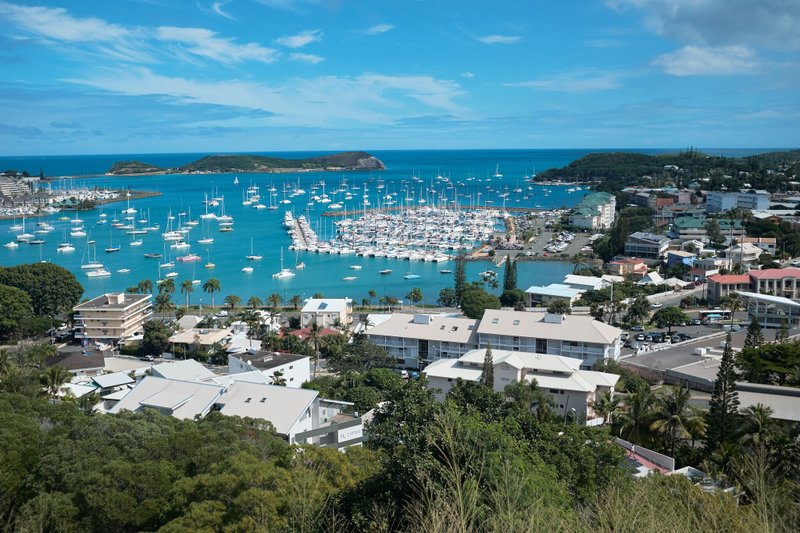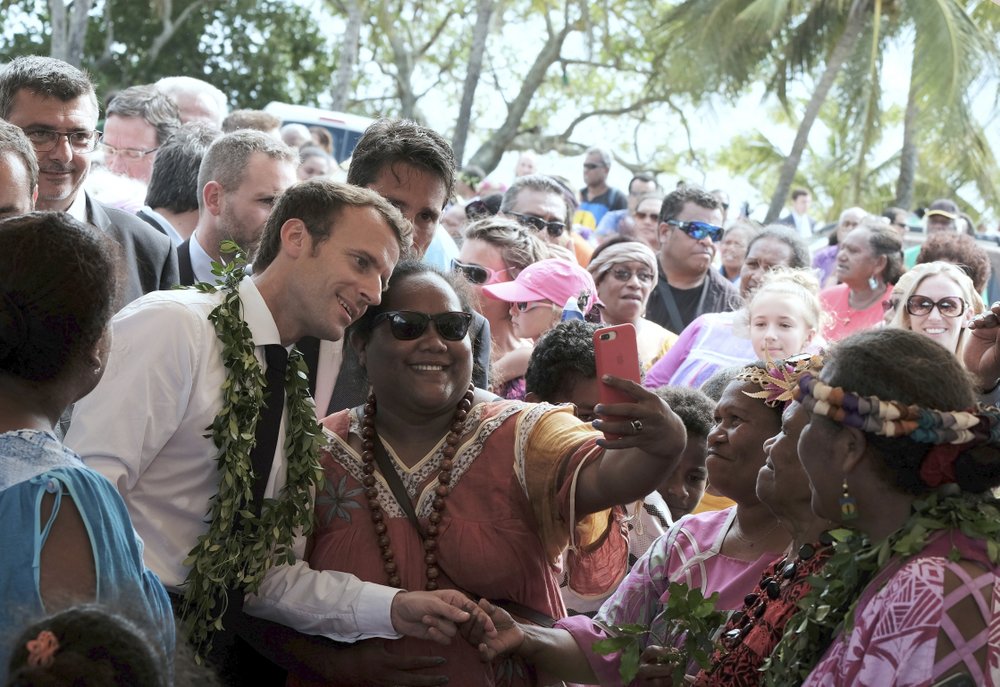
A woman participates in a referendum in New Caledonia, October 4, 2020. /AP
A woman participates in a referendum in New Caledonia, October 4, 2020. /AP
A majority of voters in New Caledonia, an archipelago in the South Pacific, chose to remain part of France instead of backing independence Sunday, leading French President Emmanuel Macron to call for dialogue, as the referendum marked a crucial step in a three-decade-long decolonization effort.
In a televised address from Paris, Macron welcomed "an expression of confidence in the Republic with a deep feeling of gratitude and modesty."
Macron promised pro-independence supporters "this is with you, all together, that we will build New Caledonia tomorrow." He called on New Caledonia residents to "look to the future."
The territory's overseas ministry said results show 53.3 percent of the participating voters in the Sunday referendum have chosen to maintain ties with France, while 46.7 percent supported independence.

File photo shows a general view of the bay of Noumea, the capital of New Caledonia. /AP
File photo shows a general view of the bay of Noumea, the capital of New Caledonia. /AP
The vote has been marked by a very high turnout. More than 85 percent of voters had cast their ballots one hour before poll stations closed, according to the overseas ministry. Some polling stations in Noumea, the capital, closed an hour late because people were still waiting in long lines to vote at the planned closing time.
Sunday's independence referendum was among the final steps of long-standing plans to settle tensions on the archipelago between native Kanaks seeking independence and other residents willing to remain in France.
A peace deal between rival factions was achieved in 1988. A decade later, the Noumea Agreement granted New Caledonia political power and broad autonomy and planned the organization of up to three successive referendums.
Two years ago, 56.4 percent of people in a similar referendum voted against independence. A third referendum may be organized by 2022.

Visiting French President Emmanuel Macron has photos taken with local residents on the Ouvea Island, off New Caledonia, in May 2020. /AP
Visiting French President Emmanuel Macron has photos taken with local residents on the Ouvea Island, off New Caledonia, in May 2020. /AP
New Caledonian politicians acknowledged on Sunday the need for dialogue between pro- and anti-independence sides. The president of the archipelago's government, Thierry Santa, is among those who want New Caledonia to remain a French territory. He stressed the "deep division" in the population.
"That's up to us political leaders to have the intelligence to sit around a table and discuss what we want for the future," Santa said.
The archipelago has a population of 270,000, including both native Kanaks, who once suffered from strict segregation policies and widespread discrimination, and descendants of European colonizers.
New Caledonia became French in 1853 under Emperor Napoleon III — Napoleon's nephew and heir — and was used for decades as a prison colony. It became an overseas territory after World War II, with French citizenship granted to all Kanaks in 1957.
The vote is key to settling tensions between the two sides in the divided socity. It is also a test of the depth of the links between France and the territory, which lies east of Australia.
Visiting the territory in May, French President Emmanuel Macron acknowledged the "pain of colonization" and paid tribute to the courage of those involved in the peace process. He also handed the Caledonian government a document that stated the archipelago became a French possession in 1853 — a gesture intended to symbolize the final chapter in the period of colonization.
(With input from AP)